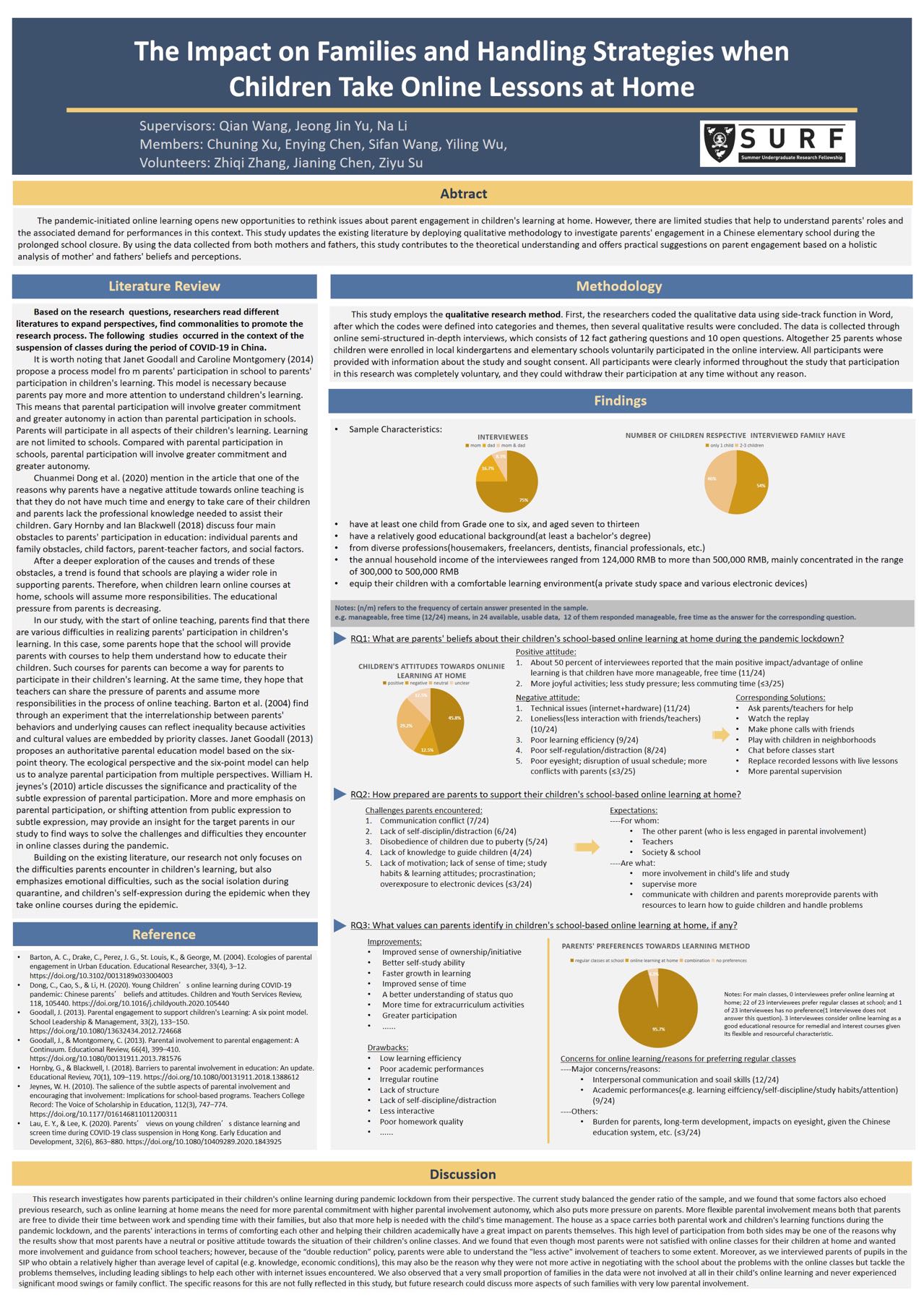
Parental Coping Strategies & Challenges in Children’s Online Learning During COVID-19
During my time as a research assistant at Xi’an Jiaotong-Liverpool University, I had the unique opportunity to contribute to a project examining the impact of children’s online learning at home on families during the COVID-19 pandemic. Under the guidance of Professor Qian Wang, I focused on understanding how parents experienced and coped with the challenges associated with online learning for their children.
The central research question of this project was: How has the shift to online learning affected parents’ daily lives, and what coping strategies have they employed to manage these challenges? To answer this, we developed a research design that included both qualitative and quantitative elements. Working with my co-workers, I created a set of qualitative questionnaires that aimed to capture in-depth insights into parental experiences. The questionnaires consisted of 12 fact-gathering questions designed to collect background information about the family’s situation, and 10 open-ended questions that encouraged parents to share personal reflections on their coping strategies and emotional responses to the challenges of online learning.
Once the questionnaires were developed, I conducted semi-structured online interviews with parents. This part of the project was particularly rewarding as it allowed me to connect with participants in meaningful ways and hear firsthand accounts of their struggles and strategies. Many parents spoke about the difficulty of balancing work, household responsibilities, and overseeing their children’s education from home. The interviews also revealed the diversity of coping mechanisms, ranging from seeking help from family members to using online resources to manage the stresses of homeschooling.
After the interviews were completed, I transcribed and translated the responses into English. I then conducted a thematic analysis of the interview transcripts, identifying key patterns and themes related to the parents’ experiences. Findings are listed below:
- Parental Stress: Many parents reported feeling overwhelmed by the increased responsibility of managing both work and children’s online learning, leading to higher stress levels.
- Positive Attitudes: Despite the challenges, parents expressed a neutral to positive attitude toward the online learning process, recognizing it as an opportunity for closer engagement with their children’s education.
- Supportive Environments: Families that had a dedicated space for learning at home found it easier to manage both work and children’s schooling, contributing to better overall outcomes for their children.
In summary, my time as a research assistant on this project was an incredibly enriching experience. It strengthened my skills in qualitative research and family studies, and I gained a deeper appreciation for the impact of the COVID-19 pandemic on families, particularly in the realm of education.